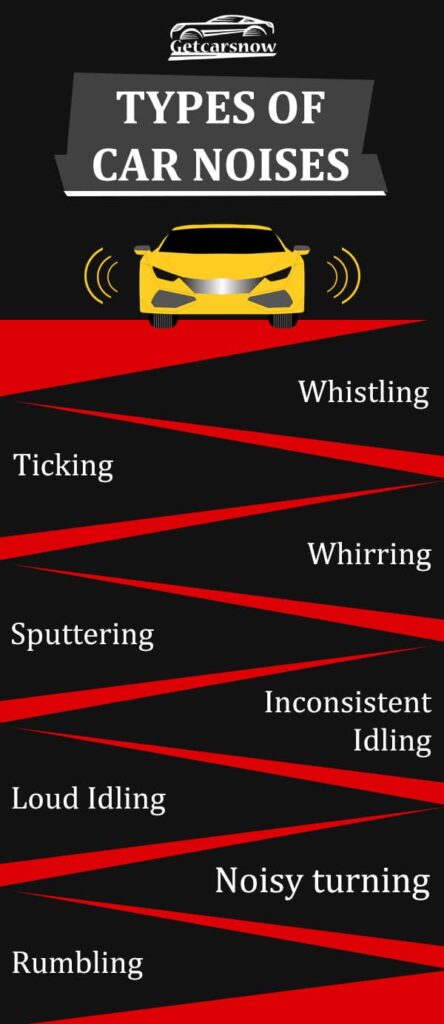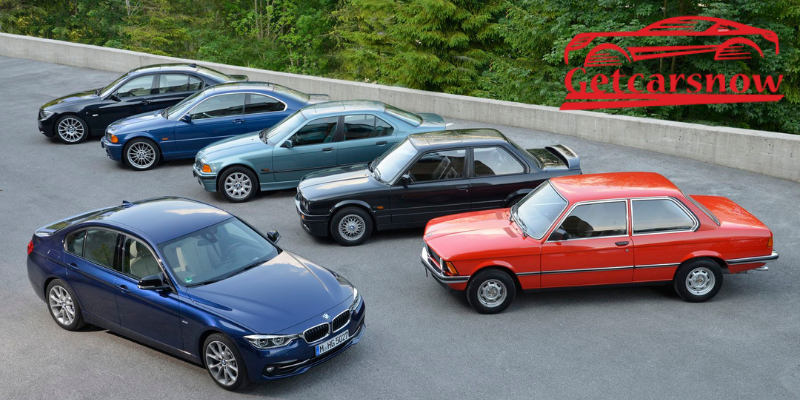Car Noises And Their Indications
We, humans, are surrounded by hundreds of essential things. And one of them is the car. Cars nowadays are everywhere & they have become a vital part of our lives. We are totally dependent upon our vehicles for travelling. So it is our duty to take care of them. Sometimes our car makes different types of noises that we ignore most of the time. But we shouldn’t ignore it as it can lead to a serious problem for your car.

Types of car noises
Use our guide to recognizing car noises and what they mean to give your car the consideration it deserves.
Whistling
What’s the source of that whistling sound? If you just hear this noise inside your car when driving, your vehicle’s weather-stripping is most likely faulty. However, if the whistling noise comes from under the hood, it may indicate something more serious.
Hoses are important components of your engine’s cooling system, but they are also the most delicate. The constant flow of air and cooling fluid into your car’s engine will create tiny holes in hoses, causing the space seal to be broken. It’s likely that the whistling sound you’re hearing is air escaping through these holes.
Ticking
Check your car’s oil tank if anything is ticking and clicking in your engine. Noisey pistons are also an indicator of low oil levels since they depend on lubricating oil to run smoothly. Test your car’s dipstick before taking it to the store.
Whirring
If your car is whirring and squealing for attention, it’s likely that you’re dealing with a belt problem. Your car’s engine has many revolving belts in addition to several gaskets, hoses, and wires. As they circulate at high speeds around a system of pulleys, these belts can stretch or crack over time. Belt replacement is inexpensive and will save you money in the long run.
Sputtering
If your car stumbles or continues After removing the keys from the ignition, you may be hearing the results of “dieseling.” In a nutshell, dieseling is when gasoline remains to ignite by concentration alone in the cylinder without the aid of the sparkplug. Although this effect is slightly limited to older engines with carburettors, as opposed to newer fuel-injected motors, do not be surprised if you hear a couple of coughs from your engine after turning it off.
Inconsistent Idling
If you find that your car’s regular beat is off, it may be due to a problem with one of its sparkplugs. Sparkplugs are in charge of igniting the fuel in your car’s engine, but they can wear out, short out, or break.
Loud Idling
A good used engine can rumble, but not overly so. There may be a problem with cylinder compression if your car is noisier than normal. Combustion will occur at higher or lower rates than average if the air-fuel ratio in the cylinder is uneven. Higher cylinder pressure can make the engine sound louder than normal, or even create a knocking noise. Failure to address this problem could result in engine damage.
Noisy turning
It may be a problem with your car’s wheels or tyres if you hear odd sounds only when turning. Although low reflation or tyre wear may be the cause, there are other possibilities, such as a worn wheel bearing or incorrect wheel balance.
Rumbling
If your vehicle sounds weird when you accelerate, there is clearly a hole in your veil. Although holes in your veil are not harmful to car performance, they are dangerous since they may allow unsafe fumes to leak into the passenger compartment. Although these sounds can give you clues as to what’s wrong with your vehicle, the best thing you can do to keep your car running smoothly is to keep a regular sustenance schedule.
Summary
Car noises and their Indication. Use our guide to recognizing car noises and what they mean to give your car the consideration it deserves. Whistling, whirring and coughing are all signs of a belt problem. If your car stumbles or continues after removing the keys from the ignition, you may be hearing the results of “dieseling” If you find that your car’s regular beat is off, it may be due to a problem with one of its sparkplugs. It is our duty to take care of our vehicles, as they are a vital part of our lives.
There may be a problem with cylinder compression if your car is noisier than normal. If your car sounds like NASCAR when you accelerate, there is apparently a hole in your muffler. Low inflation or tyre wear may be the cause, but there are other possibilities.



